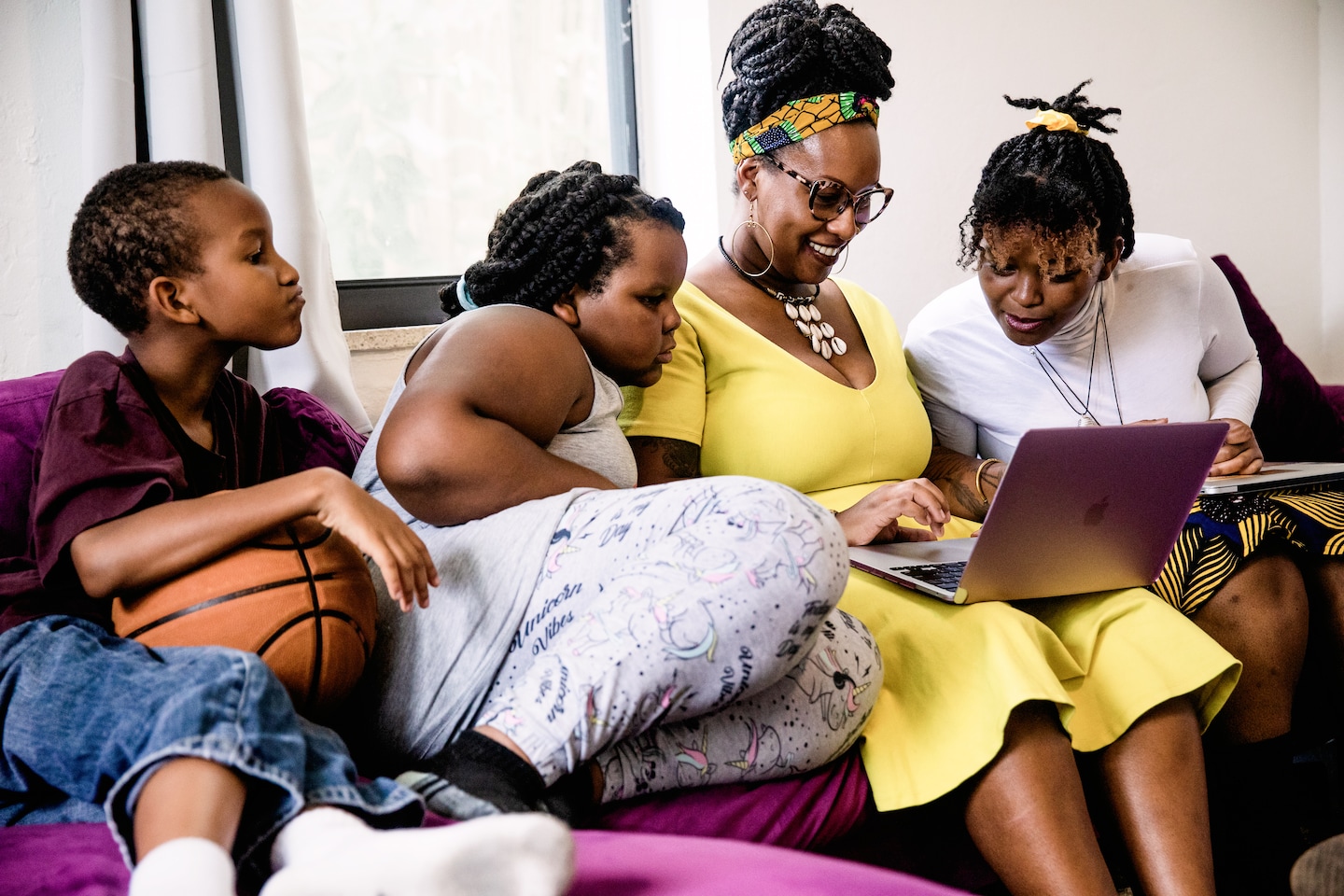Now, she believes, a bill before Florida legislators — one that bars material causing students “discomfort,” “guilt” or “anguish” — would limit the accurate teaching of Black American history in schools. “If this law passes, kids won’t be able to see themselves reflected at all within their own education,” she said.
“To just give children some sanitized, watered-down version of history that doesn’t address the historical context and the truth doesn’t work,” said Amani, who is also executive director of the Southern Birth Justice Network, which advocates for Black maternal health. That’s “not at all what I want for my children,” she said.
In many parts of the country, Black educators say they have to be extra careful, concerned that material they present will make students or their parents uncomfortable or that a colleague or community member will be offended. They worry that assigning the wrong book or having an out-of-context comment captured on video could land them in hot water — or out of a job.
Della Cayson, who is Black, teaches American and African American history in a majority-White public high school not far from Atlanta. She has stopped organizing events for Black History Month in recent years, because she feels she hasn’t had the support she needs from administrators when parents or colleagues criticize her. Cayson said another Black teacher at the school was told to stop teaching “The Hate U Give,” an award-winning novel by Angie Thomas that in part depicts the police killing of a Black teen and its aftermath.
Last year, as part of a professional development effort, faculty members were assigned to read “Why Are All the Black Kids Sitting Together in the Cafeteria?,” a book that explores the psychology of racism and offers a framework for talking about race. Cayson said the effort fell apart when many teachers didn’t read the book and minority teachers were offended by comments on the book sent in by their White colleagues.
Republican Georgia legislators are seeking to pass a bill that would limit how educators teach about racism and history. It says Americans should be allowed “an aspirational and inspirational take on America’s history, debunking the misguided argument that the present-day problems of black Americans are caused by the injustices of past failures, such as slavery.” And earlier this year Georgia Gov. Brian Kemp (R) vowed to “protect our students from divisive ideologies like critical race theory that pits kids against each other.”
But educators and others say critical race theory, a decades-old legal framework that says racism is systemic in the United States, isn’t taught in schools, and they’ve argued that attempts to ban it in Georgia and elsewhere are simply intended to get rid of diversity initiatives in teaching and restrict lessons that explore America’s darker history.
Burley, who has been teaching for 22 years, moved in 2020 from a high school where she was one of two Black teachers to a middle school where most of the faculty is Black. She describes the new environment as a “soothing balm” in which she’s allowed to teach knowing she has the support of her colleagues and administration.
“I think that raised the scrutiny on teachers, you know, put more of a microscope on us, particularly social studies or history teachers, or particularly those of us who are African American who, like myself, may have a reputation for being a Black history teacher who incorporates Black history into their content,” Pierce said.
Jade Thompson, 16, attends Florida Virtual School, the state’s online option. The curriculum is the same as the curriculum at in-person schools. She said students can handle diversity and the critical thinking she believes legislators are trying to ban. When she was still attending in-school classes, Thompson said, students of different races would discuss the tough issues outside the classroom, and nobody’s feelings were hurt.
“Especially when it comes to specifics with slavery and stuff like that, we would all talk about the underlying causes and break it down during lunch or after school,” she said. “We’d be like, ‘How did this happen?’ And it would really be like an intellectual conversation. … It wasn’t like: ‘Oh my God, Becca. How could your family do this? This is your fault.’ Nobody was trying to make people feel guilty about history. We were just trying to understand and figure things out.”
The eagerness of students to learn and discuss difficult history has long been apparent to Myron Curtis, a teacher and the head football coach at Broad Run High School in Loudoun County, Va. When the school held its curriculum day in early February to allow students to sample courses, Curtis’s African history and diaspora classroom was full — three separate times.
But Curtis also knows there has been blowback across the country against history courses, especially Black history courses, that teach America’s failures and inequities alongside its achievements. His school district of 81,000 students landed at the center of those debates when a parent group targeted Loudoun schools for initiatives that included bias training for teachers and a public apology for segregation.
Even in states where there hasn’t been as much pushback, Black teachers are angry about what they see as retrenchment when it comes to exploring essential issues of racism and equity in American history. And they think there is a fundamental misunderstanding of what is and isn’t taught by teachers in class.
“Right now there’s so much influence from the outside about what happens in classrooms,” said Krystal Davis, a Black high school teacher in a suburban Chicago district. “What teachers do every day, they don’t get it. They really think that we’re out there teaching kids like: ‘White people were bad. Black people are great. And White people mistreated Black people forever.’ … They really think that if you say ‘I’m teaching Black history,’ then that wipes out all of their history.”
This content was originally published here.


